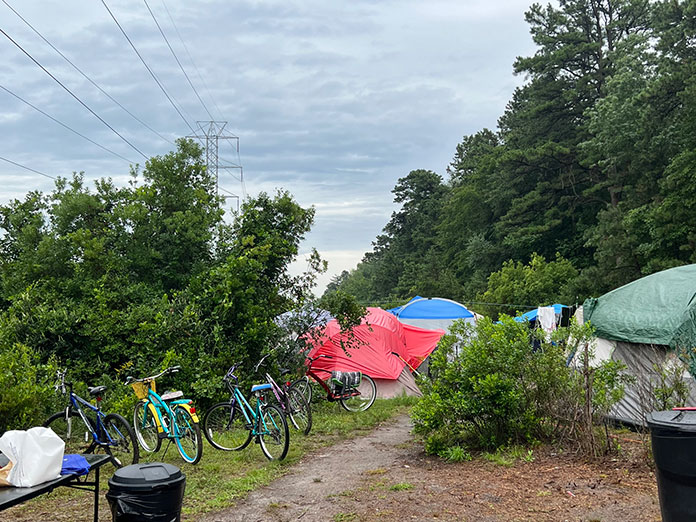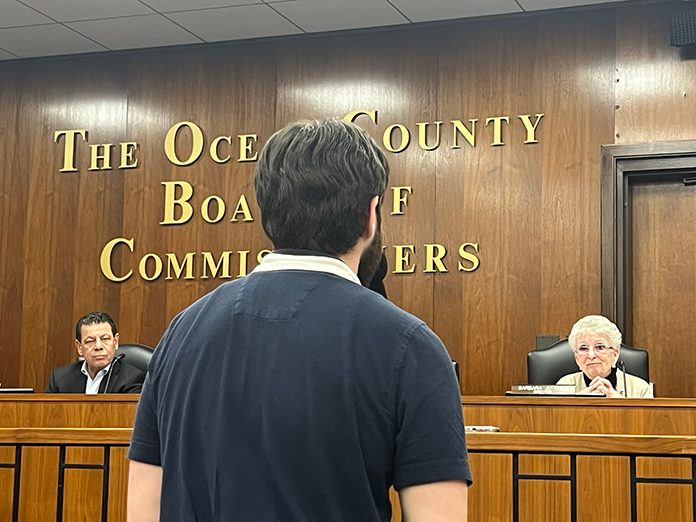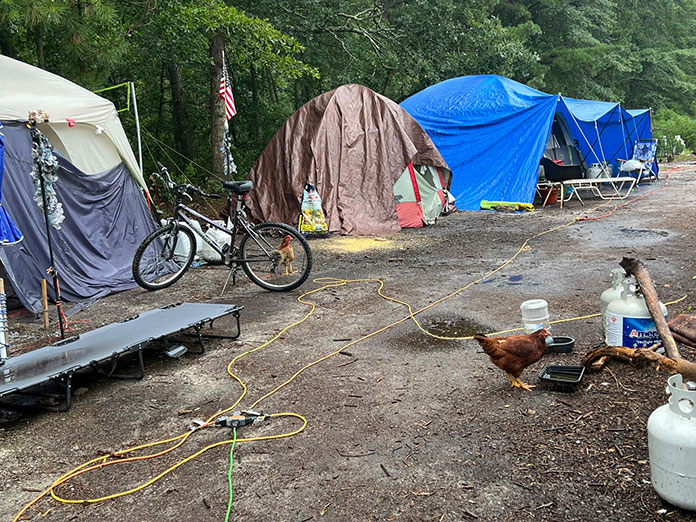
TOMS RIVER – This is the third installment in our series on Ocean County’s appropriation of $12.5 million in American Rescue Plan Act (ARPA) funds to prevent homelessness and assist the unhoused.
Part One provided a general overview of the awards and painted a broad picture of homelessness in Ocean County. Part Two delved into the $5 million awarded to Bright Harbor Healthcare for establishing a Young Adult Bridge Housing program. So, what about the remaining $7.5 million?
The Ocean County Commissioners earmarked those funds to award a competitive contract to HABcore, Inc. in collaboration with Family Promise of the Jersey Shore and Bright Harbor Healthcare. Each organization will leverage their expertise for the “Acquisition for Innovations to Address Homelessness” program for the Ocean County Department of Human Services. This two-year contract runs from July 2, 2024 through June 30, 2026.
“In our first two rounds of ARPA requests, we dedicated funding to prevention, addressing unique needs around keeping people in their homes so they weren’t winding up as unsheltered homeless individuals,” explained Dr. Tracy Maksel, Director of Human Services.
Maksel said that the Homelessness and Housing Instability Program was overseen by the Ending Homelessness team from Monarch Housing Associates, which also subcontracted to other organizations. In many cases, this continues to mean dealing with mortgage or rental arrears or even utility shut offs for non-payment.
Emergency Shelter Proposals
When it came to awarding the funds for congregate or non-congregate emergency homeless shelters, Maksel said the three groups submitted proposals that made them stand out.
“They have four projects they’re actively seeking,” said Maksel. “Two are to purchase hotel/motels and turn them into non-congregate sheltering.”
Elizabeth Golla, Executive Director of Family Promise of the Jersey Shore said her organization is working on acquiring a large building that would extend their existing services. The nonprofit currently partners with various host sites that provide families with a place to sleep on a rotational basis that changes from week to week.
Participants in Family Promise’s emergency shelter program also have access to a day center in a homelike setting. They receive counseling to assist them in finding solutions in their long-term housing needs.
Golla said that other Family Promise groups across the nation have set up shelters that don’t require packing up to move to different places each week they’re in the program.
“Ours is going to be unique in the sense that we’re also going to take individuals as well,” explained Golla. “We’ve already proven this model and concept for years that’s been working with families. We also plan to focus on vulnerable individuals like seniors who need the help.”

While the location for the building being purchased hasn’t been revealed yet, plans call for it to house up to 50 people at once. Families will have their own private living spaces, similar to efficiency apartments, with access to shared community rooms. The focus on privacy and dignity extends to individuals as well, who will also have their own designated areas within the building.
“Good programming is an important piece of this,” Golla emphasized. “It’s being designed specifically for what’s best for people and will give them links to get into housing of their own.”
Steven Heisman, Executive Director of HABcore, added that the goal is to create a space that feels welcoming and supportive – a place where people experiencing homelessness feel it’s a clear improvement over living in a tent or car.

“The main goal is to have people placed in permanent housing,” stressed Heisman. “We’re not looking at a setup where 50 people sleep on cots for three to six months and still have nowhere to go.”
Heisman reported that HABcore successfully transitioned a couple of individuals from the encampment near Winding River Park into apartments. The camp, established by Minister Steve Brigham of Destiny’s Bridge, was created to provide shelter for those who believed they had no other options.
HABcore has an outreach team that goes to various locations to help those whose safety could be in jeopardy or have other challenges. Bright Harbor’s involvement will be in assisting those with mental health or substance abuse issues.
“The primary challenge is the lack of affordable housing,” said Heisman. “It’s just unavailable for people struggling with no income or with minimal income, whether it’s SSI or SSD or a pension or minimum wage job. They just can’t find the housing out there.”
Heisman said the organizations are not tied to time limits when helping people through the stages to permanent housing. HABcore has successfully operated boarding houses that have assisted people who would otherwise be unhoused.
“I’ve got one woman who came with the boarding house when it was bought in 1988,” he shared. “We try to do rapid rehousing, but that’s not always possible.”






